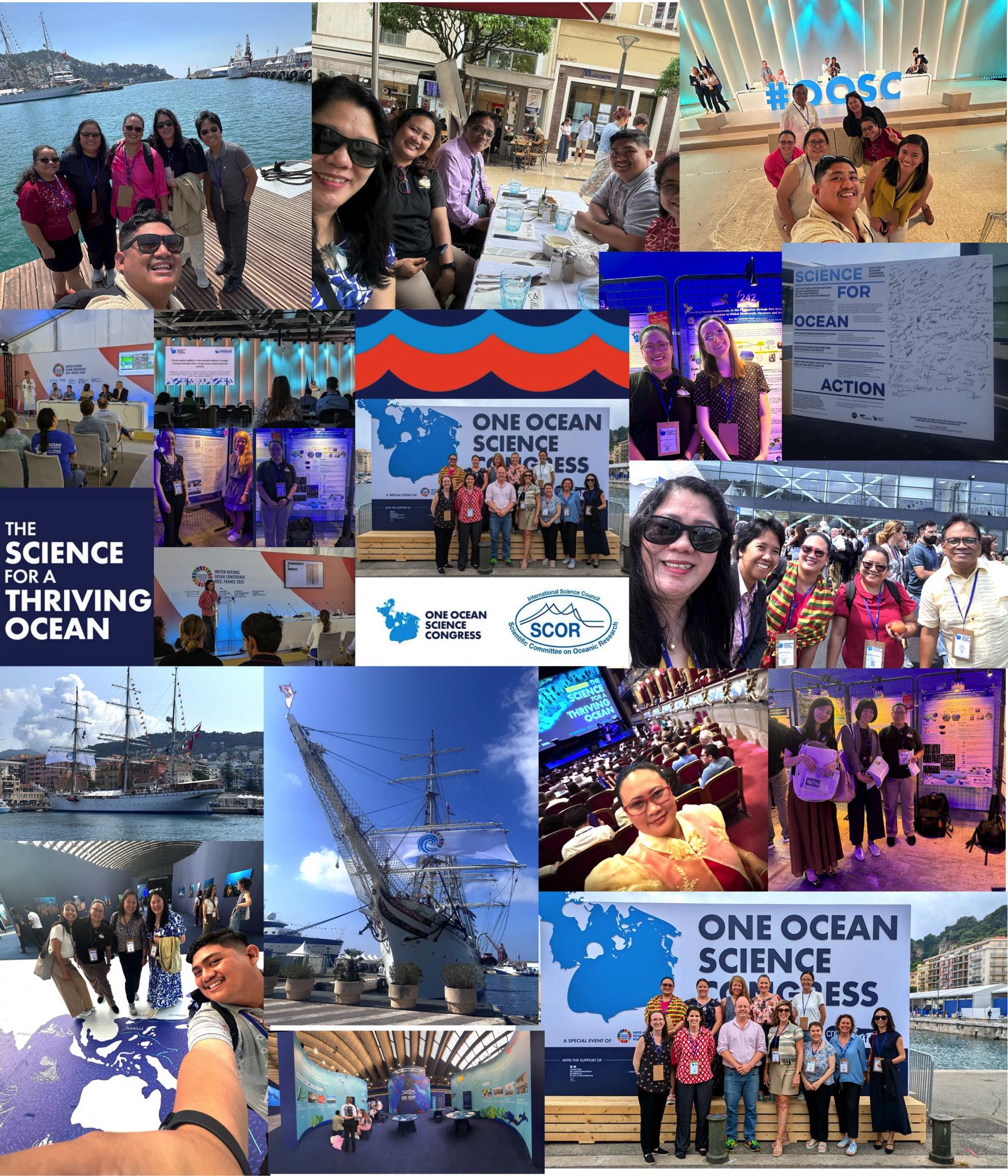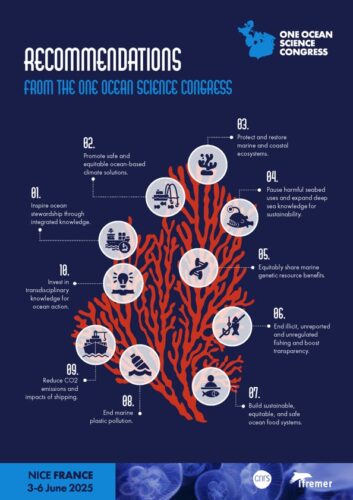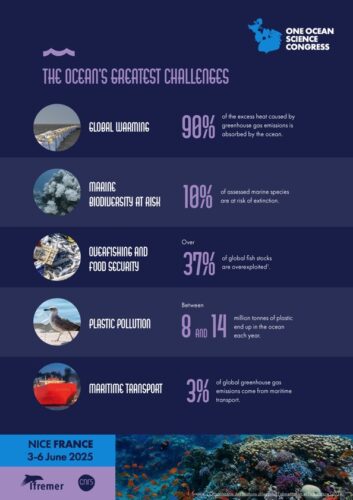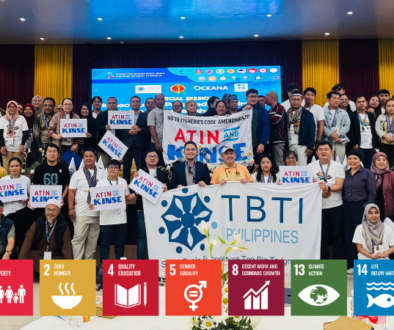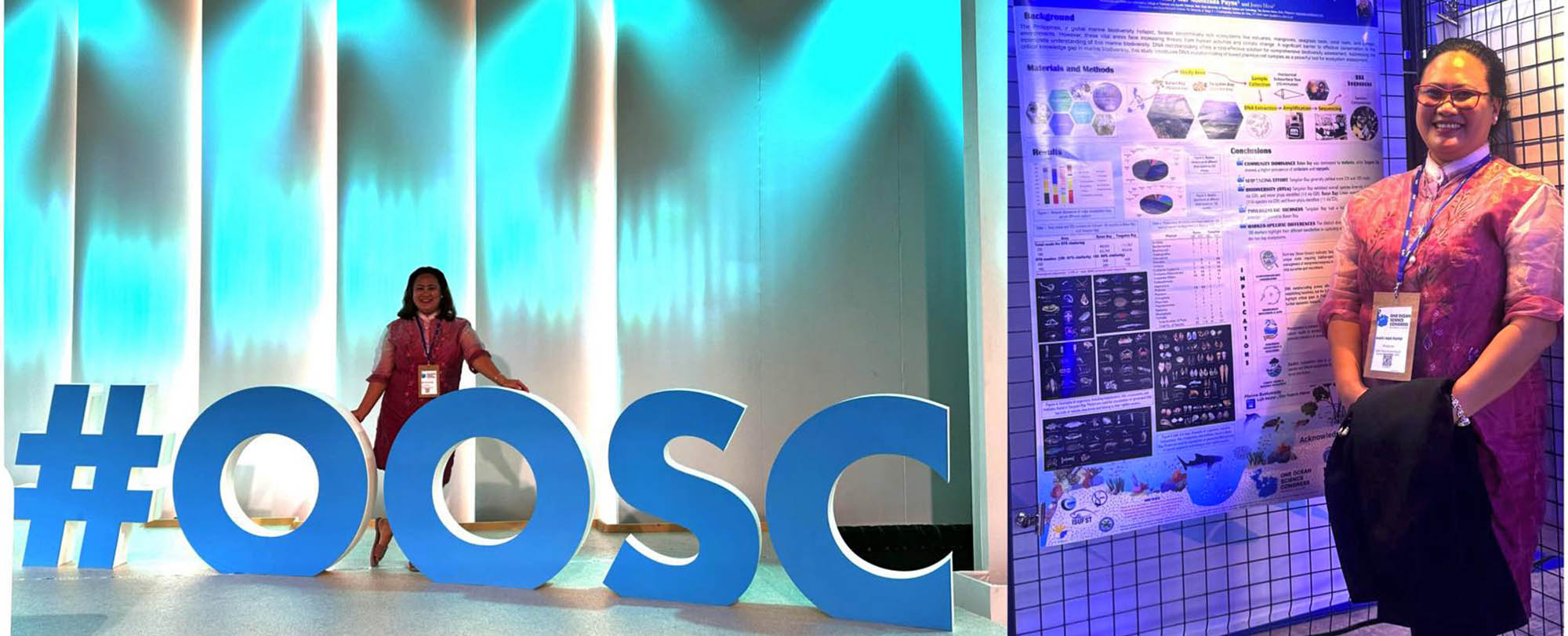
In a first on the world stage, the Iloilo State University of Fisheries Science and Technology (ISUFST) was featured on the global stage through its faculty researcher, Dr. Mary Mar Noblezada Payne of its College of Fisheries and Aquatic Sciences, during the One Ocean Science Congress (OOSC) on June 3 to 6, 2025, in Nice, France. As a top-tier scientific forerunner to the Third United Nations Ocean Conference (UNOC3), the event convened over 2,000 scientists globally to share critical concerns for the world’s oceans and share science-informed responses to the climate and biodiversity crises.
Hosted by France’s National Centre for Scientific Research (CNRS) and French Research Institute for Exploitation of the Sea (IFREMER), the congress was designed to bring political leaders and international stakeholders scientific expertise relevant to policy decision-making in Sustainable Development Goal 14—“Life Below Water.” The OOSC was a designated special event of the UNOC3, which took place from June 9 to 13, also in Nice.
Dr. Payne, a Scientific Committee on Oceanic Research (SCOR) scholar and principal investigator of ISUFST’s DOST-PCAARRD Biodiversity and Molecular Laboratory, presented “Unveiling Marine Biodiversity in the Philippines through DNA Metabarcoding: A Contribution to Global Biodiversity Discovery and Inventory.” Her presentation featured the rich yet threatened marine ecosystems of the Philippines and emphasized the significance of genomic tools for conservation, biodiversity evaluation, and sustainability activities in Southeast Asia.
“This opportunity was more than just a platform to present data,” said Dr. Payne. “It was a chance to show that institutions like ISUFST, though geographically small, are globally significant contributors to ocean science and solutions. Our work feeds into a global effort to understand and protect marine life before it’s too late.”
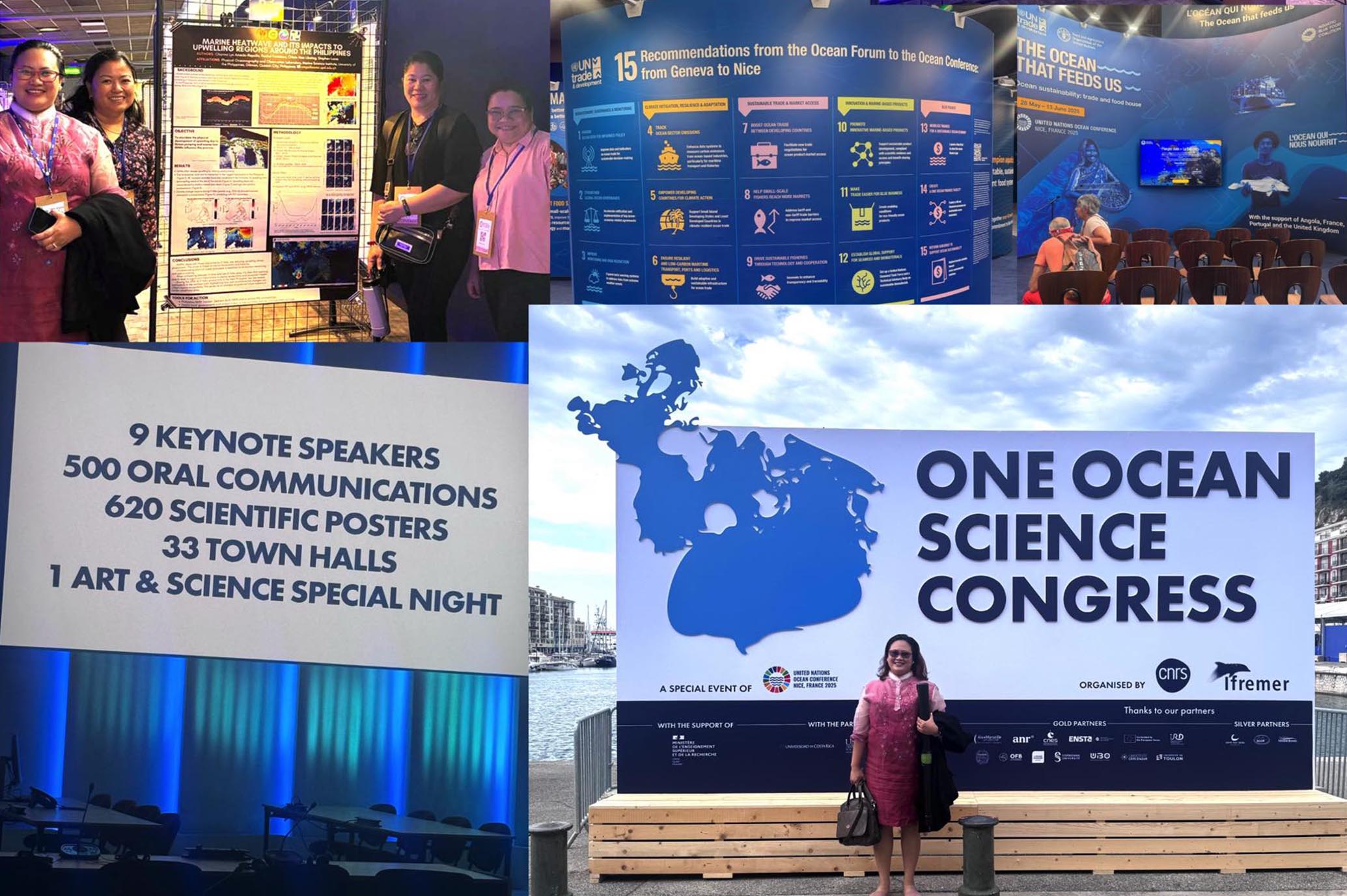
ISUFST’s participation is unique since it is in line with its mandates being the country’s first and only fisheries university, authorized by CHED and a number of international accrediting bodies for quality fisheries education, community development, and environmental innovations. By virtue of its inclusive graduate and undergraduate programs, ISUFST remains a constructor of the United Nations Sustainable Development Goals through its activities on research, international connections, and community-centered extension work.
Additionally, other Filipino researchers from the UP Marine Science Institute, UP Visayas, Catanduanes State University, and from Oceana Philippines and Sulubaai Environmental Foundation were in attendance during the Congress. Chaperoned by researchers from Norway, the USA, and France, they shared their knowledge, provided case studies, and were involved in more than 30 roundtable discussions and townhalls on climate resilience, marine policy, and science diplomacy.
Hosted at historic venues in Nice including Quai Infernet and Palais des Expositions, the OOSC included over 500 oral presentations and 600 scientific posters. The congress concluded with world-streamed keynote lectures highlighting the necessity of safeguarding marine ecosystems as a common global resource.
Dr. Payne’s participation not only brought with it ISUFST’s growing presence in the international science community but also opened avenues for potential future collaborations in the discovery of biodiversity and genomics. Her participation affirms the university’s vision of becoming not only an institution that succeeds in the country but also takes a leading role in delivering sustainable and science-enriched solutions on the global level. (Herman Lagon/ PAMMCO)
